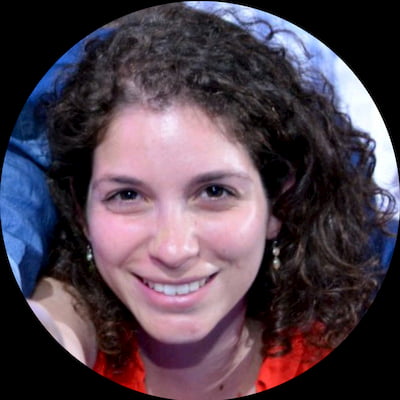

Bio
Inbal is an applied computer vision scientist at Amazon Web Services, working on the AWS Rekognition API. She holds a MSc degree in Electrical Engineering from Tel Aviv University and a BSc in Physics from Hebrew University. She is a graduate of the Talpiot program and served for 6 years in the IDF as a computer vision researcher, team leader and project manager.
Bio
Inbal is an applied computer vision scientist at Amazon Web Services, working on the AWS Rekognition API. She holds a MSc degree in Electrical Engineering from Tel Aviv University and a BSc in Physics from Hebrew University. She is a graduate of the Talpiot program and served for 6 years in the IDF as a computer vision researcher, team leader and project manager.
Abstract
We introduce a binary embedding framework, called Proximity Preserving Code (PPC), which learns similarity and dissimilarity between data points to create a compact and affinity-preserving binary code. This code can be used to apply fast and memory-efficient approximation to nearest-neighbor searches. Our framework is flexible, enabling different proximity definitions between data points. In contrast to previous methods that extract binary codes based on unsigned graph partitioning, our system models the attractive and repulsive forces in the data by incorporating positive and negative graph weights.
The proposed framework is shown to boil down to finding the minimal cut of a signed graph, a problem known to be NP-hard. We offer an efficient approximation and achieve superior results by constructing the code bit after bit. We show that the proposed approximation is superior to the commonly used spectral methods with respect to both accuracy and complexity. Thus, it is useful for many other problems that can be translated into signed graph cut. This paper will be presented at AAAI 2020 as a poster.
Abstract
We introduce a binary embedding framework, called Proximity Preserving Code (PPC), which learns similarity and dissimilarity between data points to create a compact and affinity-preserving binary code. This code can be used to apply fast and memory-efficient approximation to nearest-neighbor searches. Our framework is flexible, enabling different proximity definitions between data points. In contrast to previous methods that extract binary codes based on unsigned graph partitioning, our system models the attractive and repulsive forces in the data by incorporating positive and negative graph weights.
The proposed framework is shown to boil down to finding the minimal cut of a signed graph, a problem known to be NP-hard. We offer an efficient approximation and achieve superior results by constructing the code bit after bit. We show that the proposed approximation is superior to the commonly used spectral methods with respect to both accuracy and complexity. Thus, it is useful for many other problems that can be translated into signed graph cut. This paper will be presented at AAAI 2020 as a poster.
Planned Agenda
| 8:45 | Reception |
|---|---|
| 9:30 | Opening words by Shir Meir Lador, Data Science leader at Intuit |
| 9:45 | Yael Karov - AI For Assisting in Task Completion |
| 10:15 | Ofra Amir - Agent Strategy Summarization: Describing Agent Behavior to People |
| 10:45 | Break |
| 11:00 | Lightning talks |
| 12:30 | Lunch & Poster session |
|---|---|
| 13:30 | Roundtable session & Poster session |
| 14:30 | Roundtable closure |
| 14:45 | Gal Yona - How Fair Can We Be |
| 15:15 | Daphna Weissglas - Turning Data Science Into Precision Medicine Empowering Millions |
| 15:45 | Closing remarks |
Planned Agenda
| 8:45 | Reception |
|---|---|
| 9:30 | Opening words by Shir Meir Lador, Data Science leader at Intuit |
| 9:45 | Yael Karov - AI For Assisting in Task Completion |
| 10:15 | Ofra Amir - Agent Strategy Summarization: Describing Agent Behavior to People |
| 10:45 | Break |
| 11:00 | Lightning talks |
| 12:30 | Lunch & Poster session |
| 13:30 | Roundtable session & Poster session |
| 14:30 | Roundtable closure |
| 14:45 | Gal Yona - How Fair Can We Be |
| 15:15 | Daphna Weissglas - Turning Data Science Into Precision Medicine Empowering Millions |
| 15:45 | Closing remarks |




